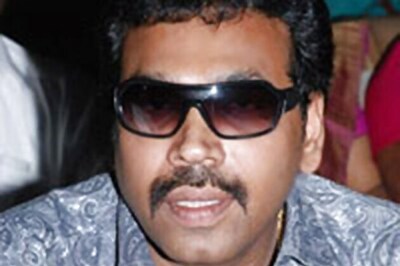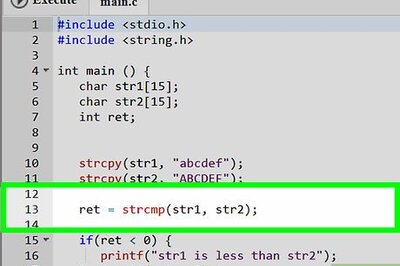
views
VISAKHAPATNAM: The fourth Andhra Pradesh Science Congress-2011, jointly organised by Andhra Pradesh Akademi of Sciences and GITAM University brought forth various research findings taken up by noted central research organisations.Over 200 articles were presented at the Congress on various areas of research.Around 500 delegates including scientists from various research organisations participated in Congress which concluded on Wednesday.Assessment of Malaria in the CountryIndian Institute of Chemical Technology (IICT), Biology Division, Chief Scientist USN Murhty said out of 11 countries in South-East Asia, 10 are malaria endemic with approximately 20 per cent of population in those countries at high risk.India constitues around 76 per cent of total malaria cases from the region, he said.Malaria is a major public health concern in North Eastern states of India, in which Arunachal Pradesh is considered as highly endemic, he added.The recent IICT studies have developed a model to assess incidence of malaria with reference to climate change, he added.The current model of malaria epidemiology of vector population is driven by weather variables, he said.Proposal for a Brain BankSK Shankar from Bangalore based National Institute of Mental Health and Neurosciences stressed the need of the establishment of a brain bank for the collection and distribution of a standardised human brain tissue collected at autopsy.The geographic, ethnic and genetic differences which exist in human biology and knowledge from the west cannot be extrapolated to orientals, he said.Human brain bank should be a national facility, he added.Toxic Chemical DetectorsDefence Research and Development Establishment, Gwalior Expert MVS Suryanarayana said DRDE laboratory, since many years, has been exploring the possibilities of controlling the usage of toxic weapons both in military and other security forces.22% monazite resources are in IndiaDepartment of Atomic Energy, Atomic Minerals Directorate for Exploration and Research wing expert K Umamaheswar said there are over 200 radioactive minerals, in which Uranium and Thorium find application as fuel in the threestage Nuclear Power Programme of India.CCMB study on Cold-loving bacteria Centre for Cellular and Molecular Biology (CCMB) research group headed by S Shivaji presented a paper on ‘Do life forms surivive at subzero temperatures? A study of Antarctic Flora and Fauna’.Bacteria from various regions of the world particularly from Antarctic, Arctic and Himalayan glaciers, have been studied, he said.The research group identified several new bacteria, he added.“Research activity in my lab has focused on the distribution of psychrophilic bactera, their survival strategies and their usefulness to biotech industry,” he said.


















Comments
0 comment